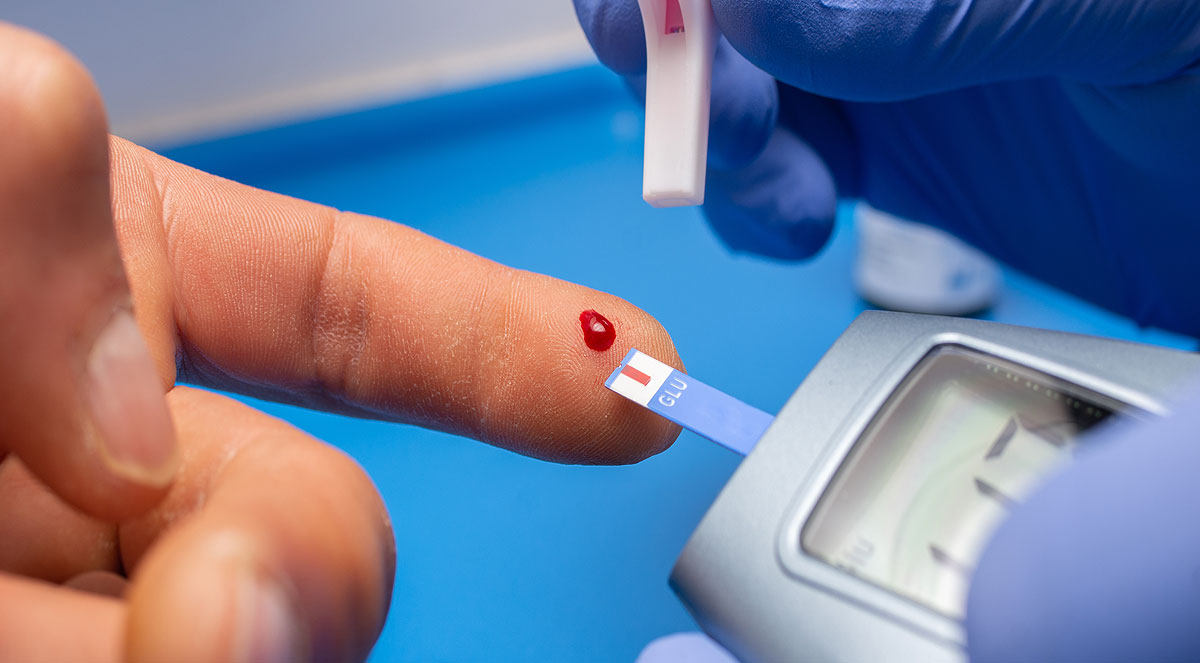Lowering blood sugar naturally involves various lifestyle changes and dietary adjustments. Here are some tips to help manage blood sugar levels:
Healthy Diet: Focus on a diet rich in fruits, vegetables, whole grains, lean proteins, and healthy fats. Limit foods high in refined sugars and carbohydrates.
Portion Control: Watch your portion sizes to avoid overeating, which can lead to spikes in blood sugar levels.
Regular Physical Activity: Engage in regular exercise, such as walking, jogging, cycling, or swimming, for at least 30 minutes most days of the week. Physical activity helps improve insulin sensitivity and lowers blood sugar levels.
Stay Hydrated: Drink plenty of water throughout the day to help regulate blood sugar levels.
Monitor Carbohydrate Intake: Be mindful of the types and amounts of carbohydrates you consume. Opt for complex carbohydrates that are high in fiber and have a lower glycemic index.
Choose Low-Glycemic Foods: Foods with a low glycemic index (GI) cause slower increases in blood sugar levels compared to high-GI foods. Examples of low-GI foods include non-starchy vegetables, legumes, and whole grains.
Include Fiber: Fiber-rich foods help slow down the absorption of sugar into the bloodstream, which can help stabilize blood sugar levels. Good sources of fiber include fruits, vegetables, whole grains, legumes, and nuts.
Manage Stress: Chronic stress can contribute to elevated blood sugar levels. Practice stress-reducing techniques such as deep breathing, meditation, yoga, or spending time in nature.
Adequate Sleep: Aim for 7-9 hours of quality sleep each night. Poor sleep can disrupt hormone levels and lead to insulin resistance, which can affect blood sugar control.
Limit Alcohol Consumption: Alcohol can cause fluctuations in blood sugar levels, so it’s important to consume it in moderation or avoid it altogether.
Apple Cider Vinegar: Some studies suggest that consuming apple cider vinegar before meals may help improve insulin sensitivity and lower blood sugar levels. However, more research is needed to confirm its effectiveness.
Herbal Supplements: Certain herbs and supplements, such as cinnamon, fenugreek, and bitter melon, may have potential benefits for lowering blood sugar levels. Consult with a healthcare professional before taking any supplements, especially if you’re on medication or have underlying health conditions.
Always consult with a healthcare professional before making significant changes to your diet or lifestyle, especially if you have diabetes or other health concerns related to blood sugar control. They can provide personalized recommendations based on your individual health needs and medical history.
Why is it important to keep the blood sugar within a healthy range?
Blood sugar, also known as blood glucose, is a critical component of overall health, and maintaining it within a healthy range is essential for several reasons:
Energy Source: Glucose is the primary source of energy for the body’s cells, including those of the brain. Maintaining stable blood sugar levels ensures that cells have a constant supply of energy to function optimally.
Brain Function: The brain relies heavily on glucose for energy. Fluctuations in blood sugar levels can affect cognitive function, mood, and concentration. Chronic high blood sugar levels are associated with an increased risk of cognitive decline and conditions such as dementia.
Prevention of Diabetes Complications: Consistently high blood sugar levels can lead to complications associated with diabetes, including cardiovascular disease, kidney damage, nerve damage (neuropathy), eye problems (retinopathy), and foot problems.
Regulation of Hormones: Insulin, a hormone produced by the pancreas, plays a crucial role in regulating blood sugar levels. When blood sugar levels rise after eating, insulin helps transport glucose from the bloodstream into cells for energy or storage. Proper regulation of insulin and blood sugar levels is essential for overall hormone balance and metabolic health.
Weight Management: Stable blood sugar levels can aid in weight management by reducing cravings, promoting satiety, and preventing overeating. Spikes and crashes in blood sugar levels can lead to increased hunger and cravings for high-calorie, sugary foods.
Energy Metabolism: Blood sugar levels impact metabolism and the body’s ability to efficiently use and store energy. Maintaining stable blood sugar levels helps support a healthy metabolism and may aid in weight management.
Overall Health and Well-Being: Balanced blood sugar levels are associated with better overall health, increased energy levels, improved mood stability, and reduced risk of chronic diseases such as type 2 diabetes, heart disease, and stroke.
Monitoring and managing blood sugar levels through lifestyle changes, diet, exercise, and medication (if necessary) are crucial for preventing health complications and promoting overall well-being. Individuals with diabetes or prediabetes should work closely with healthcare professionals to develop a personalized management plan tailored to their needs.







